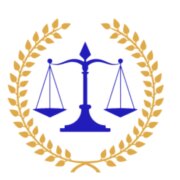Best Sex Crime Lawyers in Durban
Share your needs with us, get contacted by law firms.
Free. Takes 2 min.
List of the best lawyers in Durban, South Africa
About Sex Crime Law in Durban, South Africa
Sex crime law in Durban aligns with South Africa's national law, which strictly prohibits any form of sexual assault, rape, harassment, paedophilia, and exploitation. In recent years, the South African legal system has taken stronger measures to combat the rising rates of sexual offences, by implementing severe penalties, victim support systems, and community awareness programs. Durban, like other South African cities, takes these laws seriously, aiming to eliminate sexual crimes and bring justice to victims. Victims are encouraged to report offences and take legal action against perpetrators.
Why You May Need a Lawyer
Sex crimes are serious offences, and their legal proceedings can be complex and emotionally taxing. If you are a victim, you may require a lawyer to navigate the South African legal system, protect your rights, and ensure justice is served. Likewise, if you're wrongly accused of a sex crime, a lawyer can help defend your rights, present your case convincingly, and prevent serious consequences like imprisonment or reputational damage. Lawyers can provide the legal knowledge, negotiation skills, and support needed during such taxing times.
Local Laws Overview
South Africa's Sexual Offences Act is the key legislation dealing with sex crimes. The law criminalizes various forms of sexual offenses, including rape, sexual assault, incest, bestiality, and child molestation. It also provides specific protections for children and mentally disabled individuals from sexual exploitation or abuse. Importantly, it places a duty on anyone aware of sexual offences against children or mentally disabled persons to report it to the police. Non-consensual sex constitutes rape under South African law, and the penalties can range from hefty fines to life imprisonment, depending on the nature of the crime.
Frequently Asked Questions
What should I do if I have been sexually assaulted?
If you become a victim of a sexual crime, first ensure your immediate safety, then report the crime to the police as soon as possible. Medical treatment should follow, which will also help preserve necessary physical evidence.
Can I report a crime that happened a long time ago?
Yes, you can report a sex crime regardless of how much time has passed since the incident. There is no limitation period on reporting sexual offences.
What if I am too afraid to report the crime?
The process can indeed be frightening, but remember, there are several victim support services in place that can guide you through the process and make you feel safer.
What kind of evidence is required in a sex crime case?
Physical evidence, CCTV footage, eyewitness testimonies, or any communication between the victim and the alleged perpetrator can all serve as evidence. A forensic examination can be crucial in gathering physical evidence.
Can a lawyer ensure my anonymity in court?
Legal measures can be taken to protect the identity of sexual assault victims in most cases. An attorney can guide you on how to apply these protective measures.
Additional Resources
The South African Police Service and the Sexual Offences Courts are primary sources of assistance. Other support organizations include the Rape Crisis Cape Town Trust, People Opposing Women Abuse (POWA), and Childline South Africa, which provide resources and support to victims of sexual crimes.
Next Steps
If you are in need of legal assistance related to a sex crime, promptly consult a lawyer specializing in sex crimes. When you find an attorney, ensure to provide them with all the necessary details about the incident. Collaboration with law enforcement agencies and support organizations can also provide additional assistance throughout your journey toward justice.
Lawzana helps you find the best lawyers and law firms in Durban through a curated and pre-screened list of qualified legal professionals. Our platform offers rankings and detailed profiles of attorneys and law firms, allowing you to compare based on practice areas, including Sex Crime, experience, and client feedback.
Each profile includes a description of the firm's areas of practice, client reviews, team members and partners, year of establishment, spoken languages, office locations, contact information, social media presence, and any published articles or resources. Most firms on our platform speak English and are experienced in both local and international legal matters.
Get a quote from top-rated law firms in Durban, South Africa — quickly, securely, and without unnecessary hassle.
Disclaimer:
The information provided on this page is for general informational purposes only and does not constitute legal advice. While we strive to ensure the accuracy and relevance of the content, legal information may change over time, and interpretations of the law can vary. You should always consult with a qualified legal professional for advice specific to your situation.
We disclaim all liability for actions taken or not taken based on the content of this page. If you believe any information is incorrect or outdated, please contact us, and we will review and update it where appropriate.
















